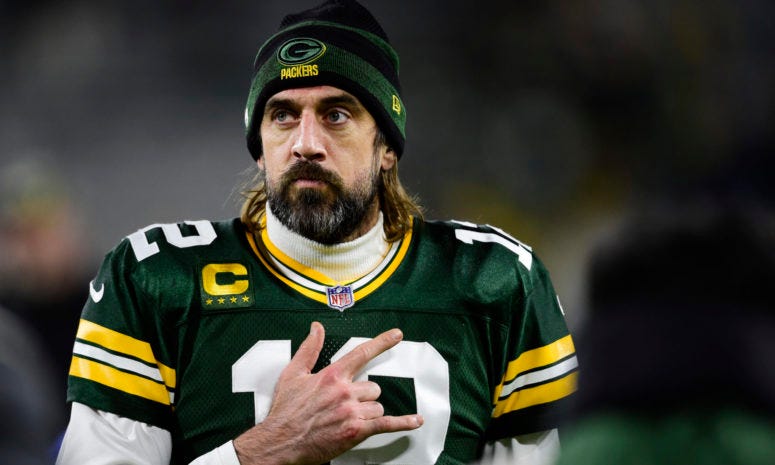Aaron Rodgers is Almost Right
And how being almost right can be very dangerous in football and pandemics
Full disclosure. I’m a cheesehead. That is, I’m die hard fan of the Green Bay Packers, an American football team located in Green Bay, Wisconsin. They were the winners of the very first Super Bowl, held in 1967, and are quite possibly on their way to win this year’s, as well.
The unquestionable leader of the team is Aaron Rodgers, their starting quarterback since 2008 and current reigning Most Valuable Player of the National Football League. If the Packers have the ball with a minute left in the game and are trailing by less than a touchdown, the other team might as well give up. Rodgers will inevitably march his team down the field and score. It is impossible to stop him.
That said, Rodgers was in the news this fall for less than honourable reasons. After coming down with COVID, it was found that he had lied when asked if he had been vaccinated at the beginning of the season. Technically speaking, he had proclaimed that he was “immunized” because he had taken a homeopathic treatment to prevent contracting the virus. That’s not a question of syntax. It’s a lie.
There are no mandates in the National Football League (NFL) for players to have vaccines. Apparently, negotiating with their union is too much work for the owners, so they have relied on an honour system. And that’s a commodity Aaron apparently had little of when he put the health of his teammates and staff at risk.
In a recent interview on the Pat McAfee show, Rodgers stated, “If science can’t be questioned it’s not science anymore, it’s propaganda.” He then went on to add, “That’s the truth. When someone comes out with a scientific study, what do they always say? They say it’s a peer review. What does that mean? It means people in the same field have gone through it, questioned the hypothesis, questioned the research and looked it up to see if this research stands up. That’s what science is all about.”
This is, in fact, a very good description of science and peer review. And it is refreshing to hear this coming from a well-respected athlete in a public venue. The problem is that his actions imply this peer review has not been done, and that it is up to him and others who are not “people in the same field” to do it. That’s a misleading and very dangerous message to propagate.
In reality, the science has been questioned and reviewed, many many times. That’s what was going on while we awaited official approval of the vaccines. The primary questions posed were “Is this vaccine effective?” “Is it safe?” “Are there any important side effects?” “What risks am I taking when I take it?” and an important one (often overlooked in the media) “What are the risks to myself, my family, my community and the rest of the planet if I don’t take it?”
The vaccines have passed through two layers of questioning: statistical and peer review. Concerning statistics, the questions were asked tens of thousands of times during the trials, and have been asked again hundreds of millions of times following release of the vaccines. Concerning peer review, the questions have been asked throughout the entire process, from the initial proposals to develop the vaccines to multiple detailed reviews of the data from trials and from large-scale vaccination.

We have the data, we’ve read the publications and reviews, and we know the answers. The vaccines are safe, with minimal side effects, and are impressively effective in suppressing propagation of the virus and in reducing hospitalisation and death.
Even now, with the omicron variant in full force, we see the effectiveness of the vaccines and their boosters. More than 80% of hospitalisations are unvaccinated patients. They, like Rodgers, questioned the validity of the science and, like Rodgers, ignored the millions of answers that had already been provided.
So, Aaron Rodgers is almost right. Yes, we should question the science. But, we also need to accept the answers, especially when they can save our lives. It is safe and effective to take the vaccines, and it is risky and dangerous not to take them. No studies have shown otherwise.
In his own area of expertise, Aaron Rodgers knows the risk of being “almost right.” If he throws the football an inch to low, it will be deflected by a defensive lineman. If he throws it a second too late, it will be picked by a cornerback. He is an expert at throwing the ball exactly to the right place at the right time and we all respect him for that. It is his turn to show respect to those in the health sciences who have an equivalent level of expertise in their own field.
By all means, ask questions, but also accept the answers.








I hope Aaron Rodgers reads this piece